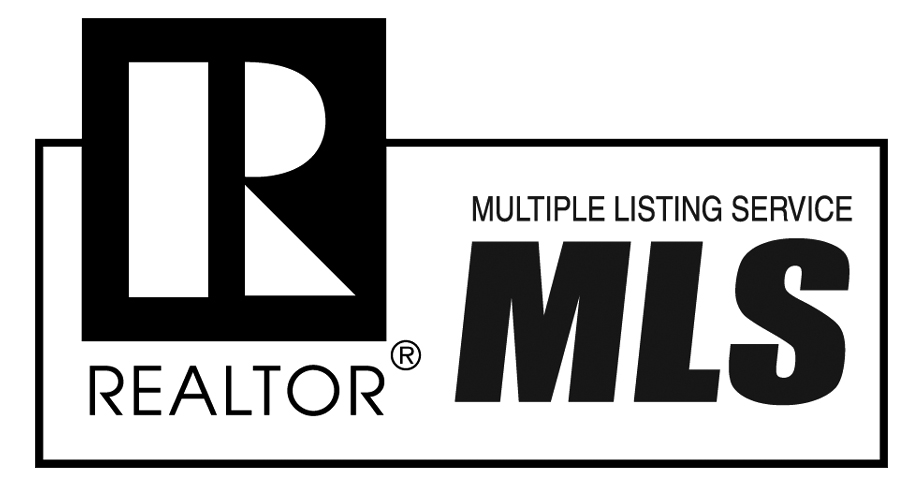Selling Tips
Research and plan
Research online and in person
You can find out a lot about your local market through research at websites real estate information, as well as by going to open houses in your area and making comparisons with your home in terms of location, size, features and condition.
Before you consider selling, research the market, focusing on properties in your area. Is it a good time to sell? Where do you intend to move next? What’s your budget, including moving? You don’t need all the answers, but you should develop a clear set of goals and have a realistic view of your finances before you invest time and money into preparing for sale.
What’s Your Home Really Worth?
Getting the price right is critical to a successful sale. Since a comparison is done between your property and similar homes on the market right now and those that have been recently sold, a home evaluation will let you put the appropriate price to your home.
Here are some common misconceptions about pricing.
- Current price is a factor of original purchase price. The fact is markets change. Your home could be worth a lot more, or a lot less than when it was new.
- All improvements add to the overall value of the home - Wrong! Many homes are over improved for their size or neighborhood. Some improvements add value, such as the addition of a garage or extra rooms in the basement.
- What would it cost to replace? Replacement value is not a valid measure of existing property value - period. Just like a used car isn't worth the same as a new one, no matter how well maintained.
- Overpricing could cost you far more than you ever hoped to gain.
How do you come up with the right price?
- The answer starts with the Comparative Market Evaluation. This evaluation is a comparison of other properties in your area that have recently sold. You will be able to compare size, age, condition, amenities and other variables with your own home. You will also see the listing price and sale price.
Preparing to sell
Make the emotional break
Once you have decided to place your home on the market, it’s time for you to remove your personal attachment to the property and think of the sale as a business transaction. Arguably the most important step before selling your property is being able to bid it farewell. Your mindset must change from selling your “home” to selling a house you happen to own and doing what it takes to make it stand out amongst the competition
Find the Right time
When you sell, you want to get as much value as you can for your home. So you might want to consider the timing of the sale because it definitely has an effect on the value.
You don’t want to sell when it’s a “buyer’s market,” when too many homes are for sale and there are not enough buyers. Seasonality is something to consider as well because typically more homes are sold in the spring rather than the winter.
Preparing Your Home For Showings
One of the most important things to remember is that you only get one chance to make a first impression. The time you take initially to prepare your home for sale will prove invaluable once it hits the market.
You can also increase the value by enhancing the appeal of your house. There are various ways to do this and it all depends on the amount of monetary resources available. You can renovate your house by remodeling an area or just freshen up the walls with a new coat of paint.
Make the house Sparkle & Shine inside and out.
Even just keeping your front lawn tidy can make a big difference. Buyers love seeing green grass and flowers outside because it feels more warm and inviting to them.
Home inspections are also something that you can do to prove the value of your home. Buyers will usually ask for a home inspection, so if you do it ahead of time it will definitely impress them.
Be financial ready
Be ready to work with the large amount of money involved in your real estate transaction.
“Discharge” your mortgage – use money from your current home’s sale to pay off the mortgage you owe.
Get your documents in order
It’s important not only to prepare your home for sale but to be prepared yourself for inquiries that might arise regarding the property, as well as, be able to present the necessary documentation that your listing agent, attorney or potential buyers will request.
Consult with experts to analyze your needs.
This could include an accountant or financial advisor, Realtor, banker, attorney, investment strategist, insurance Realtor, etc. Selling a home can have a significant impact on your financial picture and produce repercussions that continue long after the deal is closed. Evaluate your goals in selling your home carefully.
How you structure the deal, what kinds of terms you can accept, and how you price the home may vary greatly depending on your specific needs and circumstances. For example, if you need to sell quickly because you're starting a new job in another part of the country, you may price the home lower than you would if you had more time to sell.
Hire an agent
It's likely that no other single factor will have as great an impact on the successful sale of your home than your choice of a Realtor. They will be acting as your representative and you will need someone to look out for your best interests. More than anyone, your realtor would know the best way for you to get the highest possible amount for your home.
A Realtor brings;
Knowledge of the Real Estate market
- knowing what similar homes have sold for
Qualified buyers rather than "tire kickers."
- A Realtor will qualify the prospective buyer by finding out how much he can afford to spend,
- whether the buyer has or can qualify for financing and;
- how quickly he is able to move
Marketing Knowledge. Because the Realtor is working the market every day, a Realtor has the contacts, connections and exposure to attract prospective buyers for you.
Realtors services
Outline their professional responsibilities to you, including complete Disclosure, Loyalty, Confidentiality, Obedience and Accountability.
Help you determine the best asking price.
Extensively market your home in order to maximize the number of buyers who know about it, request showings and make offers
Offer proven advice on how to prepare and show your property so you get top market value for it
Regularly communicate with you to keep you fully informed of everything they do to sell your home.
Provide feedback from all showings and open houses.
Update you on both real estate and money market changes that could affect your property’s sale.
Ensure that important items are signed, sealed and delivered on closing day
There are a few ways to look for your perfect Realtor:
Jot down some names and numbers that you find on “For Sale” signs
Ask friends and family for a recommendation
Visit one of the local offices in your area
Listing and Marketing your home
How Buyers Find Out About Homes For Sale
Strategically preparing and pricing your home are master keys to attracting serious, financially-qualified buyers. However, in order to maximize the impact of these preparation and pricing strategies, your home needs to be effectively exposed to the marketplace through a variety of advertising media.
Currently, the internet (including REALTOR.com®, REALTOR® websites, social media, blogs, etc.) and direct contact with REALTORS® are far and away the main sources of home information for buyers (at 89% and 88%, respectively)* . Other sources are yard signs, open houses, newspaper and real estate magazine ads, home builders and television.
Buyers are gathering to the web
The internet is revolutionizing real estate advertising. Clearly, your REALTOR® needs to have an internet marketing strategy in place to target these desirable and more market-informed internet buyers. Here’s what discriminating internet buyers look for most on real estate websites:
- 99% – Property photos (plenty of them)
- 99% – Detailed information about properties for sale
- 88% – Virtual tours
- 80% – Real estate agent contact information
- 78% – Interactive maps
This means that your REALTOR® should have a compelling web presence where buyers are known to go online for real estate information. In addition, the internet marketing plan should include rich sites that offer lots of property details and photos, virtual tours, community and school reports, and mapping.
Particularly in this market, it’s important that your home be advertised to its fullest over the internet, and that inquiries about it be handled in as close to real time as possible. Effectively reaching and responding to more of these internet buyers can increase the demand for your home and, in turn, its value.
Negotiating and Closing the sale
Negotiation process
With rare exception, negotiating the transaction is the most complex part of selling a home. At the same time, it’s the one that can involve the most creativity. That’s why it’s important to have an experienced and REALTOR® who has successfully worked through many different transaction scenarios.
Strategies for negotiating the best possible deal you can.
- keeping in mind your situation, priorities and needs
- not giving your situation away to the buyer and buyer’s agent
- trying to understand and respect the priorities of the buyer
- where necessary, willing to compromise to get the deal done
Have You Really Found The Right Buyer?
Particularly in a market where reasonable offers can be hard to come by, once a buyer makes one you should be willing to make a few compromises to seal the deal.
Basic principles of successful negotiation to consider if you’re committed to completing your sale:
- When buyers make an offer, they are in the mood to buy. But moods change, and buyers are known to get buyers’ remorse. Don’t delay if you want the sale.
- At all times keep communication civil and agreeable, even if the buyer gets tense, or you might lose your sale
- When you’ve landed your buyer, your signed acceptance of a written offer becomes your sales contract. Except for removing any contingencies, this document is the binding basis for the sale.
Closing the deal
If you and your buyer have both efficiently taken care of your respective contractual obligations associated with finalizing the sale, the process of completing the transaction – known variously as the “closing”, or “settlement” – will go smoothly with no surprises.
There will be closing costs associated with the sale that need to be paid either by or on the closing date. It can include mortgage application fees, inspections, and legal fees. But once that’s taken care of, you can pass your old keys to the new owners. Congrats!
You’ve officially sold your house!

